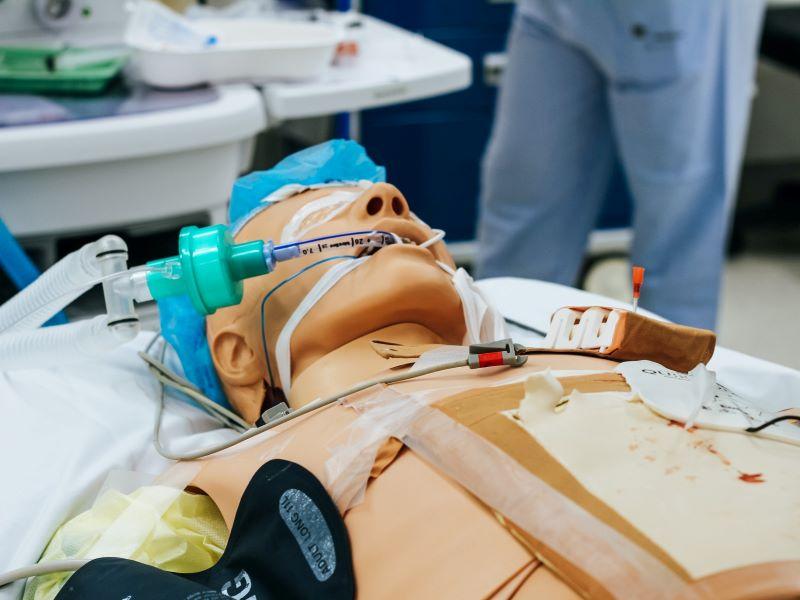Consider this: a 2020 college survey of 2,000 undergraduates found that a majority (55 per cent) feel somewhat prepared for their career after graduation, while few (13 per cent) feel very prepared.
Students worry that the coronavirus pandemic has impacted their career readiness, with many classes and internships moved online. Almost seven in 10 students (68 per cent) think the pandemic will impact their preparedness to enter the workforce after graduation.
Many students (and their parents) consider career readiness a significant and necessary outcome of their college education. And gaining more relevant, real college experiences transforms students into more confident, focused and employable graduates.
- Dragon’s zen: how to handle the jump from HE to a commercial venture
- Four practical tips for bringing students and businesses together
- Foster mentorship skills to create the socially responsible leaders of the future
It’s why in 2020, we launched Career Channels, a programme that connects every experience our students have with their life beyond Beloit College. Our channel topics include business and entrepreneurship, justice and rights, health and healing, and sports, fitness and recreation. Students choose a channel, or two, joining a professional community of peers, faculty, alumni and outside experts who are also interested in that area. More than 85 per cent of our student population now engages in one or more channels.
Over the past two years, we have learned a few lessons about linking college to career. Here are a few of the most significant.
A good idea could be right under your nose
At times, the best ideas to strengthen the college experience lie right in front of you. Administrators should examine their students’ strengths and higher education experience when creating a programme focused on connecting college to career.
Several departments were already working with our most ambitious students to connect their coursework with on-campus jobs and summer experiences, working with advisers to find opportunities, and reaching out to alumni to create professional networks. We formalised all those efforts and doubled down on ensuring every experience – in and outside the classroom – contributes to a student’s future.
We use membership in Google Group lists and event attendance to measure engagement with Career Channels. We also measure impact on recruitment through feedback from admissions counsellors and other recruiting staff, who report that the programme is well received by parents and high school counsellors and has even improved the quality of recruiting conversations.
Broaden engagement efforts among faculty, staff and alumni
One of the best ways to deliver a strong career-readiness programme is to look to your faculty and staff for assistance. Many will already have strong advising and mentoring relationships with students.
It’s also important to look off campus and leverage alumni networks for support and assistance. Many alumni want to help and be involved with their alma mater, but many focus more on donations. Offering other ways to give back opens other creative lanes for participation.
Encourage alumni to share their professional networks, offer coaching and mentoring, and commit time to advise, encourage and support. Students will benefit from the experience of connecting directly with successful individuals as they begin to explore potential career pathways.
Respect people’s time and workload
No matter how great an idea or how much goodwill and enthusiasm it engenders, your colleagues have a limited amount of time in their days. For those involved in a career-readiness programme, it’s vital to find ways to help them reallocate their workload to support this initiative.
We found a way to offer course releases for faculty willing to lead one of our eight career channels. Not only can this liberate faculty members’ time, but it can dedicate resources to the initiative, sending a clear signal that career readiness is a high priority for the college and students.
Share student and graduate success stories
Make sure to highlight your programme’s success stories, such as a recent graduate who found a passion and a job through your programme. Institutions can share triumphs directly through their website, admissions materials, social media and email communications to potential students and their parents.
Make sure to collaborate with different departments – such as marketing, communications and enrolment – to find ways to share student success stories that deliver positive visibility of the career-readiness programme.
Another way institutions can creatively share wins is through a conference showcasing students’ great work. Our Beloit & Beyond conference featured more than 70 students presenting their internships, job shadowing, volunteering, off-campus study and other forms of engagement in the region and worldwide. After the conference, student awareness and engagement with the programme increased by roughly 10 per cent.
Turn challenges into silver linings
In 2020, national shutdowns saw internships cancelled and full-time job opportunities revoked. At the time, it felt like a loss, but we quickly saw the silver lining as we learned to adapt.
When new daily Covid cases climbed, Beloit moved its 2021 spring start date to 15 February to avoid an expected post-holiday surge. During the extended break, we launched a two-week career accelerator programme for students to help them identify, prepare for and apply for internships, jobs and other career-related opportunities during their time off.
Building a new programme to connect college to life after graduation requires singular commitment. Getting buy-in, finding resources and identifying what students need (and want!) requires dedication, patience and some luck, but the results will help arm students with the confidence they need to face the professional world head-on.
Ellenor Anderbyrne is director of strategic research and assessment, and Daniel Youd is professor of modern languages and literatures; they are co-directors of Career Channels at Beloit College.




comment